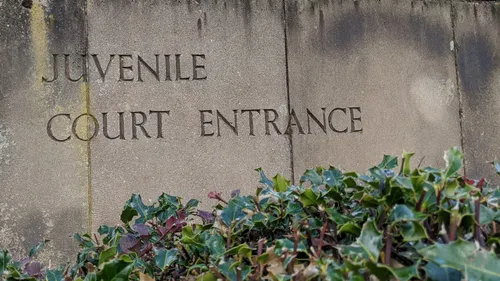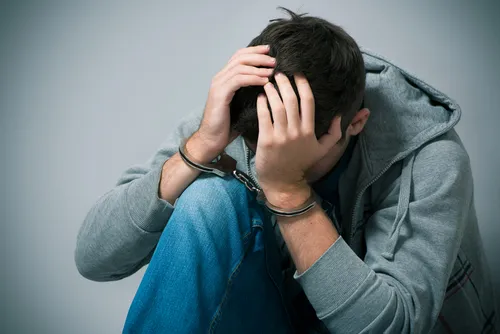At the Cowboy Law Group, we understand that there’s nothing more stressful than seeing your child or loved one face criminal charges. When juveniles are accused of a crime in Texas, it’s crucial to know their rights and how the law protects them. The juvenile justice system is different from the adult system, focusing more on rehabilitation than punishment—but that doesn’t mean it’s easy to navigate.
We’ll walk you through the basics of juvenile rights in Texas, including arrest, questioning, and court proceedings. Whether you’re looking for answers to urgent questions or want to understand how the system works, we’re here to help you take the first steps toward protecting your loved one’s future.
At the Cowboy Law Group, we defend adults and minors in The Woodlands, Conroe, the greater Houston area, and the Texas Hill Country. Contact our Texas juvenile defense lawyers for a free case review today.
Who Is a Juvenile in Texas?
In Texas, a juvenile is defined as someone who is at least 10 years old but under 17 at the time of the alleged offense. This means that if a young person falls within this age range, they will generally be tried in the juvenile court system rather than the adult criminal system. However, a minor may be charged as an adult if the crime is severe enough.
The juvenile system operates under a different set of rules and focuses more on rehabilitation, aiming to help young people make positive changes rather than simply punishing them.
Juvenile Offenses in Texas
The following are some of the most common juvenile charges in Texas:
- Theft: Taking someone else’s property without permission, often referred to as shoplifting.
- Assault: Engaging in physical harm or threatening behavior towards another individual.
- Drug Offenses: Possession or use of illegal substances, including marijuana.
- Burglary: Breaking and entering into a structure with the intent to commit a crime.
- Vandalism: Intentionally damaging property belonging to another person.
- Disorderly Conduct: Engaging in disruptive behavior that can lead to public disturbances.
Some offenses are specific to juveniles. This includes truancy (repeat unexcused absences from school) and curfew violations.
What Happens When Minors Are Arrested?
In Texas, police can arrest a juvenile for four main reasons:
- Breaking the Law: If the minor is suspected of committing a crime.
- Violating Probation: If they disobey the rules set by a court for their probation.
- Needing Supervision: If their actions show they need help or oversight, like running away from home, breaking school rules, or sharing inappropriate images of minors.
- Delinquent Conduct: Breaking a state or federal law that could lead to jail time (except for traffic violations).
To arrest a minor, police must have probable cause to believe one of these reasons applies. Police don’t need an arrest warrant to take a minor into custody.
When a juvenile is arrested, certain procedures must be followed to protect their rights. Law enforcement must notify the juvenile’s parents or guardians as soon as reasonably possible.
If your child is facing criminal charges, it’s crucial to have a knowledgeable juvenile defense lawyer advocate for his or her best interests.
The Juvenile Court Process
When a juvenile is charged, the legal proceedings differ significantly from those of adults. Here’s a breakdown of the juvenile court process in Texas.
Detention Hearings
After a juvenile is arrested, a detention hearing typically takes place within 48 hours. This hearing determines whether the juvenile will be held in a detention facility or released to a parent or guardian. The court evaluates factors such as the nature of the offense, the juvenile’s history, and the likelihood of appearing in court.
Charges and Summons
Once a juvenile is detained, the next step involves the formal charging process. The prosecutor will review the case and decide whether to file a petition. This petition outlines the allegations against the juvenile and initiates the court proceedings.
Both the child and their parent or guardian must be served with a summons and a court petition outlining the charges.
The state must file charges against juveniles within specific timeframes:
- 30 days from the initial detention hearing for a first-degree felony, capital felony, or aggravated controlled substance felony offense
- Within 15 working days for other charges or probation violations
Court Appearance
A child must be accompanied by a parent or guardian in juvenile court. If a parent or guardian cannot attend the hearing, the court will appoint a guardian to protect the child’s interests.
In the juvenile system, pleas differ from those in adult court. Instead of guilty or not guilty, juveniles plead true or false to the charges. This distinction reflects the rehabilitative focus of the juvenile justice system. Depending on the plea, the court will schedule further hearings or move forward with a disposition hearing to determine appropriate consequences.
Navigating the juvenile court system can be overwhelming for families. An experienced juvenile defense attorney will work tirelessly to protect your child’s rights.
Penalties for Juvenile Crimes in Texas
In Texas, the legal system recognizes that juveniles are different from adults. Therefore, the penalties for juvenile crimes are distinct and aim to rehabilitate rather than punish. When a minor is charged with a crime, the potential consequences vary based on the nature of the offense, the juvenile’s prior record, and their age at the time of the offense.
- Probation: Often, juveniles may receive probation instead of incarceration. This allows them to remain in their communities while adhering to specific conditions set by the court.
- Community Service: Courts may mandate community service hours as a part of the penalty. This serves to instill a sense of responsibility and accountability in the juvenile.
- Counseling or Treatment Programs: Depending on the offense, juveniles may be required to attend counseling or participate in rehabilitation programs. These programs are designed to address underlying issues contributing to criminal behavior.
- Detention: A juvenile may be placed in a detention facility. This is typically reserved for serious offenses or repeat offenders.
- Fines and Restitution: Courts may impose fines or require restitution to victims. This helps teach accountability for one’s actions.
For serious juvenile offenses, such as felonies, the penalties can be more severe. In these cases, the juvenile may face longer detention periods, or they may even be certified to stand trial as an adult, which carries significantly harsher penalties.
Can a Juvenile Be Tried as an Adult in Texas?
In Texas, juveniles who are 14 or older can be tried as adults for serious crimes. These cases typically involve violent felonies.
The prosecution must have the minor certified as an adult for the case to be tried in adult court. The judge considers several factors:
- Age and Maturity: The court assesses whether the minor is mature enough to understand the consequences of their actions.
- Nature of the Offense: Serious crimes, especially violent ones, are more likely to lead to certification.
- Prior Record: A history of previous offenses can influence the decision to try the minor as an adult.
- Rehabilitation Potential: The court evaluates whether the juvenile system can effectively rehabilitate the minor.
If the judge decides to transfer the case, the minor will face the same legal proceedings and penalties as an adult. However, juveniles charged as adults cannot be sentenced to life in prison without parole or the death penalty.
Juvenile Rights in the Texas Justice System
Juveniles accused of crimes in Texas have several important rights throughout the legal process. Here’s a summary of the key rights of juveniles facing criminal charges in Texas.
Right to Legal Representation
Juveniles have the right to be represented by an attorney. If the family cannot afford one, the court will appoint a lawyer to represent the juvenile’s interests.
Right to Parental Involvement
A juvenile must be accompanied by a parent or guardian when appearing in court. If a parent or guardian is not present, the court will appoint a guardian ad litem to protect the juvenile’s interests.
Right to Due Process
Juveniles are entitled to due process rights, which include the right to a fair hearing and the ability to present evidence in their defense. This ensures that their case is heard fairly and that they have an opportunity to contest the charges against them.
Right to Remain Silent
Similar to adults, juveniles have the right to remain silent when questioned by law enforcement. This right protects them from self-incrimination.
Right to Timely Detention Hearings
When detained, juveniles are entitled to prompt detention hearings:
- The first hearing must occur within one working day of being detained (or the next business day if detained on a weekend).
- Subsequent hearings must be held every 10 business days if the juvenile remains in detention.
Our Texas defense attorneys are committed to protecting juvenile rights throughout the court process.
Can Juvenile Convictions Be Sealed?
Juvenile criminal records are automatically restricted after turning 17. Only certain agencies, such as law enforcement, can access the information in a restricted juvenile record.
Restriction isn’t the same as sealing a juvenile conviction. The person may be required to report a restricted juvenile conviction when applying for school, financial aid, jobs, or professional licenses. After a juvenile record is sealed, no one can access it.
Many juvenile convictions can be sealed, but not all cases qualify. Whether a juvenile record can be sealed depends on the offense and the person’s criminal history. Sex offenders and juveniles tried as adults do not qualify to have their records sealed.
To be eligible for record sealing, two years must have passed since adjudication (ruling in a juvenile case) or when the person was discharged. During that period, the person must not have been convicted of a crime or engaged in delinquent conduct.
Felony juvenile records may be sealed if the person has reached the age of 19, was not tried as an adult, and does not have additional felony convictions.
The process of sealing juvenile records can be complex. Experienced juvenile defense attorneys can guide families through the legal requirements.
Why Choose the Cowboy Law Group for Juvenile Defense?
When facing juvenile charges, having the right legal representation is crucial. Cowboy Law Group understands the intricacies of juvenile law in Texas and is dedicated to protecting the rights of minors. We understand that personal attention is crucial for a strong defense in a juvenile case.
Our attorneys are well-versed in the juvenile justice system and advocate vigorously for clients. Our goal is to achieve the best possible outcome for each juvenile client, whether that means negotiating favorable plea agreements or fighting for their rights in court.
Choosing the Cowboy Law Group means choosing a team that is passionate about protecting juvenile rights. Your child’s future is important to us, and we are committed to working tirelessly to protect it.
Contact Cowboy Law Group for a Free Case Review
If your child or a young loved one is facing juvenile charges in Texas, Cowboy Law Group is here to help. Let us be your trusted ally in this difficult time. Our experienced juvenile defense attorneys are dedicated to advocating for the best possible outcomes for young clients.
Call us at 832-326-2932 or fill out our online contact form for a free case review.







